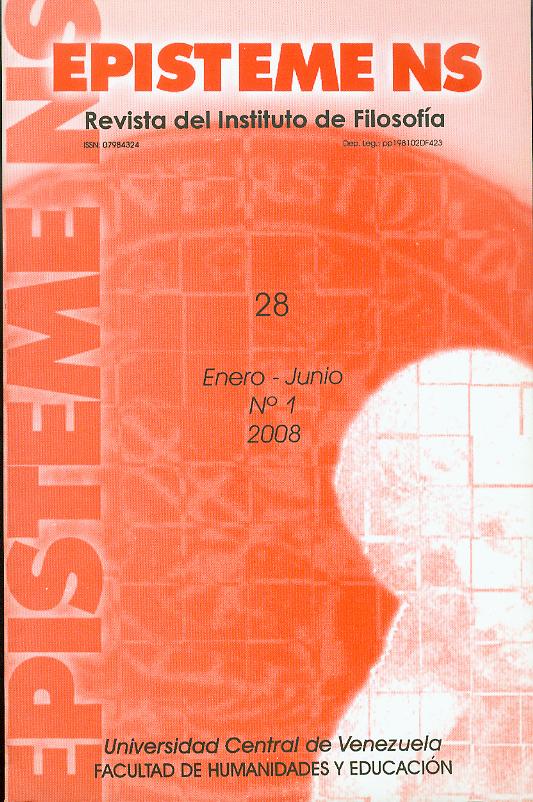CONTEXTUALISMO Y SEMANTICISMO. DEBATE ABIERTO EN LA FILOSOFÍA DEL LENGUAJE CONTEMPORÁNEA
Palabras clave:
contexto, semántica, pragmática, context, semantics, pragmatics.Resumen
Resumen: Grice es el padre de dos posiciones enfrentadas en lafilosofía del lenguaje contemporánea: Contextualismo (Bach, Perry,Recanati) y Semanticismo (Stanley, Szabó y Cappelen y Lepore). Eldebate que mantienen ambas concepciones tiene que ver con lo queuna proferencia dice literalmente. Los contextualistas, siguiendo un principio griceano bautizado por Recanati como “Principio deDisponibilidad”, consideran que lo que se dice literalmente mediante una proferencia particular contiene siempre elementos derivados del contexto; los semanticistas, fieles a la noción griceana de proposición mínima, sólo aceptan en lo que se dice elementos ligados a los ítemslingüísticos de la oración usada. En este artículo se analizan los diferentes tipos de información transmitidos por las proferencias y cómo estos se relacionan con tipos de contextos diferentes.Abstract: Grice is the father of two contemporary positions in thephilosophy of language: Contextualism (Bach, Perry, Recanati) andSemanticism (Stanley, Szabó, and Cappelen and Lepore). They dispute about what is strictly and literally said by a particular utterance. Contextualists, faithful to a Gricean principle dubbed by Recanati asthe “Principle of Availability”, consider that what is said by an utterance is always affected by contextual factors; Semanticists, following the Gricean notion of minimal proposition, only allow in what is said ingredients linguistically triggered. In this paper, different kinds of information that can be transmitted by an utterance will be analyzed and they will be linked with different types of context.
Descargas
Los datos de descargas todavía no están disponibles.
Descargas
Número
Sección
Artículos

